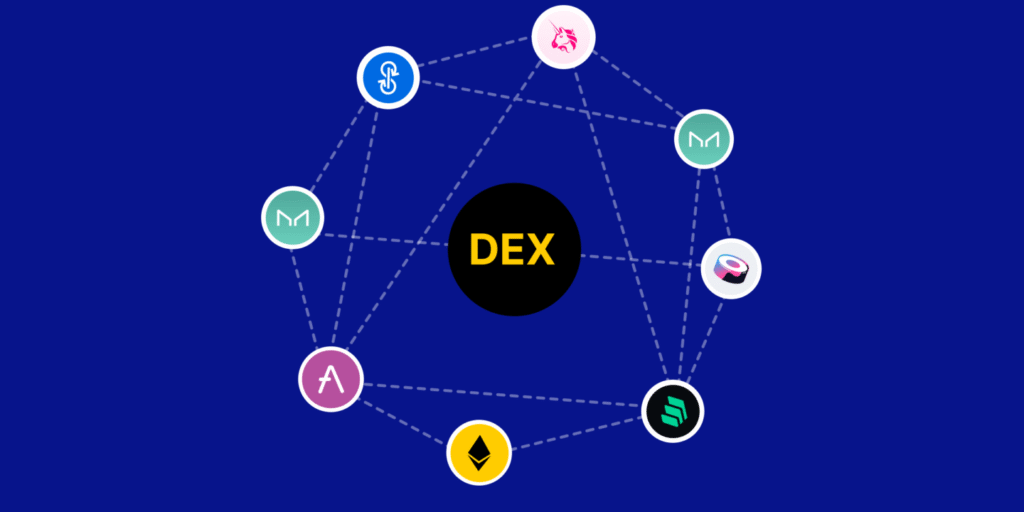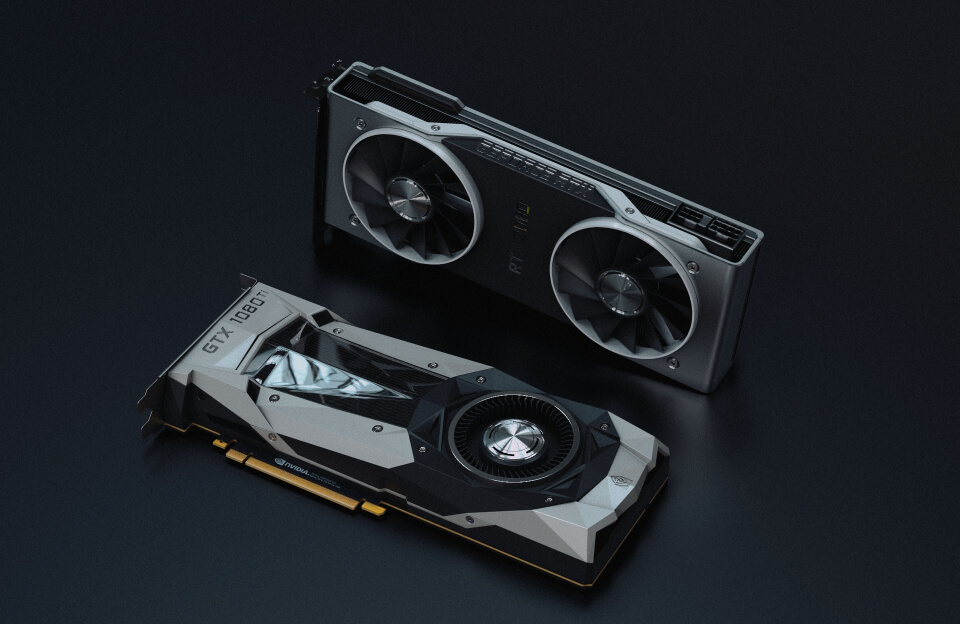A DEX (Decentralized Exchange) is a type of cryptocurrency exchange that allows users to trade directly with one another. In this guide, we explore what a DEX exchange is, how it works, and its advantages and disadvantages.
What is a DEX Exchange?
A DEX (Decentralized Exchange) is a cryptocurrency exchange that operates without a central authority or intermediary. Unlike centralized exchanges (CEX), where the platform itself controls the trading process and holds user funds, a DEX allows users to trade directly with each other in a decentralized manner using blockchain technology.
On a DEX, users retain full control of their private keys and funds, meaning they can trade without having to trust a third-party intermediary to hold their assets. DEX platforms rely on smart contracts and decentralized liquidity pools to facilitate trades and ensure that transactions are executed correctly.
How Does a DEX Exchange Work?
A DEX exchange works by enabling peer-to-peer trading through smart contracts on the blockchain. Here’s a simplified breakdown of how it works:
- Smart Contracts: Smart contracts are self-executing contracts with the terms of the agreement directly written into code. These contracts automate the trading process on a DEX, ensuring that trades happen as agreed upon without the need for intermediaries.
- Liquidity Pools: Unlike traditional exchanges, DEX platforms rely on liquidity pools to facilitate trading. These pools are made up of user-contributed assets, and liquidity providers (LPs) earn fees in return for providing liquidity to the pool. When a user wants to buy or sell a token, the trade is executed against the liquidity in the pool.
- No Custodial Control: One of the key differences between DEXs and centralized exchanges is that on a DEX, users maintain control of their funds at all times. Since there is no central authority holding user funds, this reduces the risk of hacks or exchange shutdowns.
- Order Book or Automated Market Maker (AMM): Some DEX platforms use an order book to match buy and sell orders (similar to CEX), while others use AMM models. In AMMs, liquidity pools facilitate trades based on a pricing algorithm, ensuring that users can buy or sell tokens at any time, as long as there is enough liquidity in the pool.
Advantages of DEX Exchanges
- User Control: DEXs allow users to retain control of their funds. Since users store their assets in their own wallets, there’s no need to trust a third party with their private keys or funds.
- Privacy and Anonymity: DEXs typically don’t require users to go through KYC (Know Your Customer) procedures, meaning users can trade anonymously without revealing personal information.
- Decentralization: Because DEXs don’t rely on a central authority, they are more resistant to censorship and regulatory pressure. This makes DEXs an attractive option for users in regions where centralized exchanges are restricted or regulated.
- Security: DEXs reduce the risk of hacks or exchange failures, as there is no central wallet holding large amounts of funds. The decentralized nature of DEXs makes it harder for malicious actors to target a single point of failure.
- Access to More Tokens: DEXs often offer access to a wider variety of tokens, especially smaller or newer projects, that may not be listed on centralized exchanges. This gives users greater freedom to explore different assets.
Disadvantages of DEX Exchanges
- Lower Liquidity: DEXs generally have lower liquidity compared to centralized exchanges, especially for smaller tokens or during times of high market activity. This can lead to higher slippage and less efficient trades.
- User Experience: DEXs tend to have a more complex user interface compared to centralized exchanges. Trading on a DEX typically requires understanding how wallets, private keys, and smart contracts work. This can be intimidating for beginners.
- Transaction Fees: While DEXs do not charge the same trading fees as centralized exchanges, users may still face transaction fees related to interacting with the blockchain. For example, gas fees on the Ethereum network can be high, particularly during periods of network congestion.
- No Customer Support: Since DEXs are decentralized, there is no central customer support team to help with issues or disputes. If something goes wrong during a trade or with a transaction, the user is typically responsible for resolving the issue.
- Limited Advanced Features: Many DEXs don’t offer the same advanced trading features (like margin trading or futures) that centralized exchanges provide. This limits the options for more experienced traders looking for advanced strategies.
Popular DEX Exchanges
Some of the most widely used decentralized exchanges include:
- Uniswap: Uniswap is one of the most popular decentralized exchanges, built on the Ethereum blockchain. It uses an automated market maker (AMM) model to facilitate trades and offers a wide range of ERC-20 tokens for trading.
- SushiSwap: A fork of Uniswap, SushiSwap also uses an AMM model and offers additional features such as staking and yield farming. It is known for its community-driven approach and governance token, SUSHI.
- PancakeSwap: Built on the Binance Smart Chain (BSC), PancakeSwap is similar to Uniswap but offers lower transaction fees. It is the leading DEX on BSC and supports a wide range of tokens.
- 1inch: 1inch is a decentralized exchange aggregator that helps users find the best prices across multiple DEX platforms. It allows for efficient routing of trades to minimize slippage and maximize value.
- Balancer: Balancer is another DEX built on Ethereum that allows users to create custom liquidity pools with multiple tokens. It is a highly flexible platform used for decentralized asset management.
Frequently Asked Questions (FAQ)
1. What is a DEX exchange?
A DEX exchange is a decentralized platform that allows users to trade cryptocurrencies directly with one another without the need for a centralized authority or intermediary. It uses blockchain technology and smart contracts to facilitate trades and maintain security.
2. How does a DEX differ from a CEX?
The main difference between a DEX and a CEX (Centralized Exchange) is control. In a DEX, users maintain control over their private keys and funds, while in a CEX, the exchange holds users’ funds and manages transactions. DEXs are decentralized, while CEXs are controlled by a central authority.
3. What are the advantages of using a DEX?
The advantages of using a DEX include increased privacy, control over funds, censorship resistance, security, and access to a wider range of tokens. Additionally, DEXs allow users to trade without needing to trust a third-party intermediary.
4. Are DEX exchanges safe?
DEX exchanges are generally safer than centralized exchanges because users retain control of their private keys and funds. However, they still carry risks, such as the potential for smart contract vulnerabilities and high gas fees, particularly on popular networks like Ethereum.
5. Do I need to complete KYC on a DEX?
Most DEXs do not require KYC (Know Your Customer) verification, allowing users to trade anonymously. However, this may change for some platforms as regulatory pressures increase in certain regions.
Conclusion
A DEX exchange offers many benefits, such as privacy, control over funds, and decentralization, but it also comes with challenges like lower liquidity and higher transaction costs. As the cryptocurrency market continues to evolve, DEXs are likely to play an increasingly important role, providing users with more control and access to a broader range of digital assets.


